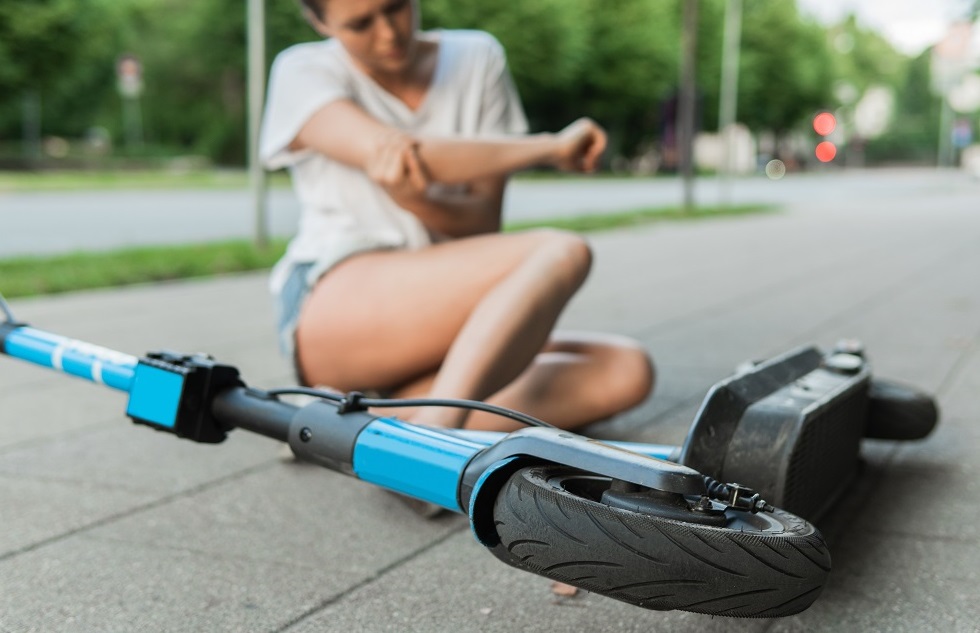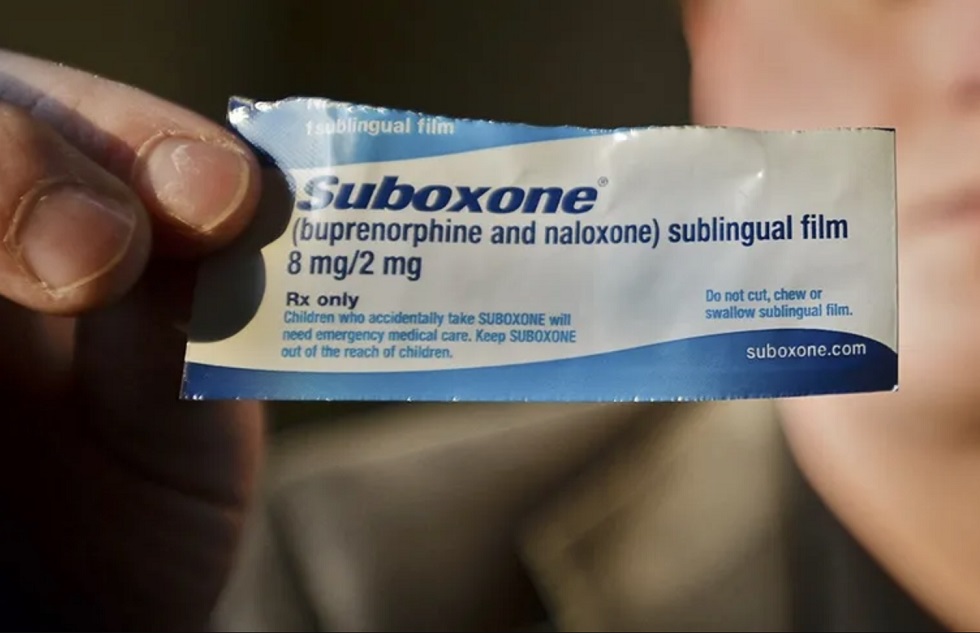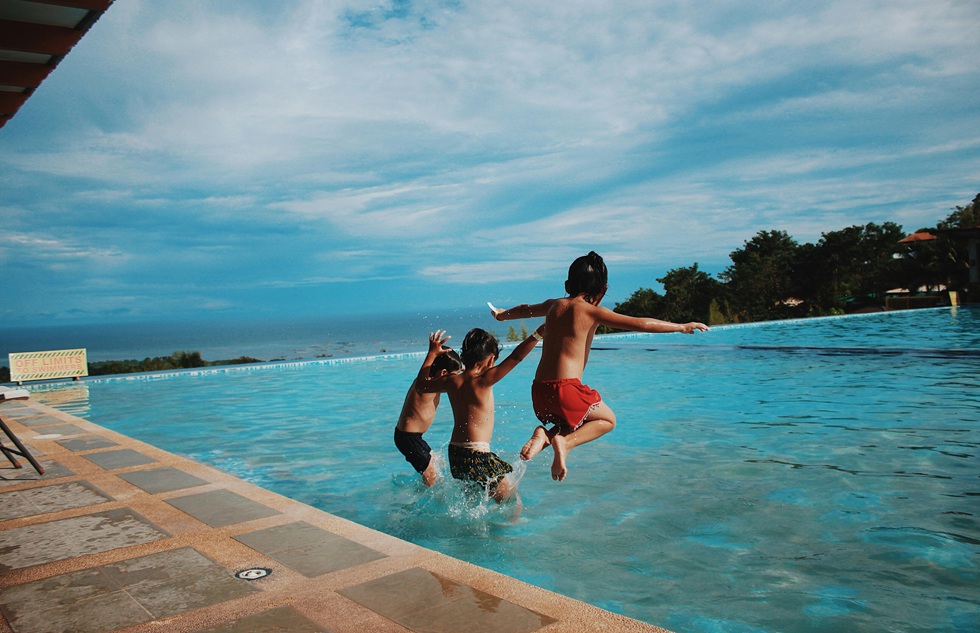When a child nearly drowns in a swimming pool in Florida, the situation is both frightening and confusing for families. Understanding the legal options available can help parents take the right steps to protect their child’s future and hold responsible parties accountable. Florida law often places a strong emphasis on property owners to maintain safe pools and take precautions, especially around children.
If a child’s near-drowning was caused by negligence, such as lack of supervision or unsafe pool conditions, parents may be able to file a legal claim for damages. This can include compensation for medical bills, pain and suffering, and other related costs. Knowing when and how to act is crucial, as Florida has specific rules about pool safety and liability that affect these cases.
Families should seek advice quickly to understand their rights and the evidence needed to support a claim. Swimming pool accidents are preventable, but when they happen, legal guidance can make a significant difference in pursuing justice.
If your child was involved in a near-drowning incident, the aftermath can feel frightening and overwhelming. You don’t have to face this alone. Contact Landau Law today for a free consultation; we’ll listen, explain your legal options clearly, and fight to protect your child’s future.
Understanding Legal Responsibility For Florida Pool Accidents
In Florida, legal responsibility for pool accidents depends heavily on who owns or controls the property, their level of care, and how well they supervise children. Liability often centers on whether safety rules were followed and if negligence played a role.
Premises Liability Laws In Florida
Florida’s premises liability laws make property owners responsible for maintaining safe conditions. This applies to both private homes and public pools.
Owners must fix hazards like broken fences, slippery surfaces, or faulty locks. Failure to do so can lead to legal claims if someone is injured.
The law expects owners to warn guests about known dangers. If a child nearly drowns because a dangerous condition was ignored, the owner may be legally liable.
Premises liability cases require proof that the owner knew, or should have known, about the risk and failed to act to prevent harm.
Duty Of Care For Property Owners
Property owners have a duty to protect visitors, especially children, from pool dangers. This means more than just following safety laws; it means taking reasonable steps to prevent accidents.
Reasonable care often includes installing barriers like pool fencing or alarms to stop unsupervised access.
Owners should also maintain pool equipment and ensure gates close properly. This prevents unauthorized or accidental entry, which is a common cause of near-drowning incidents.
If an owner neglects these duties and a child is injured, the owner can be held responsible for the damages.
Negligence In Supervision
Supervision is a critical element in pool safety. Negligence in supervision means failing to watch children closely or failing to act when they are in danger.
Parents, guardians, or supervisors must monitor children closely near pools. Leaving children alone or distracted by other activities can be considered negligent.
In some cases, property owners or managers may be held liable if they fail to provide adequate supervision or hire irresponsible staff.
Proof of poor supervision can strengthen a legal claim by showing preventable causes of the accident.
Your Legal Options After A Near Drowning in Florida
A near drowning accident involving a child in Florida can lead to serious legal steps. Parents or guardians may have the right to file claims that seek financial compensation. Depending on the situation, there are also legal actions that focus on damages or wrongful death when injuries turn fatal.
Filing A Personal Injury Claim
If a child nearly drowns due to someone else’s carelessness, a personal injury claim may be filed. This usually involves proving that the pool owner or responsible party failed to keep the area safe. Examples include lack of proper barriers, inadequate supervision, or ignoring pool safety laws.
The claim seeks to hold the responsible party accountable for the child’s injuries. It requires evidence such as witness statements, photos of the scene, and medical records. Filing within Florida’s legal time limits is crucial to protect the chance of compensation.
Seeking Compensation For Damages
Parents or guardians can seek money to cover medical bills, ongoing care, therapy, and pain and suffering. Compensation might also include lost wages if a parent needs time off work. The goal is to cover all costs linked to the near drowning event.
Damages depend on the severity of the child’s injuries and the impact on their life. It’s important to document every expense related to recovery. Florida law may hold pool owners liable if they are negligent.
Wrongful Death Actions If Injuries Are Fatal
In cases where a near drowning leads to death, a wrongful death lawsuit can be filed. This action allows family members to seek compensation for the loss. It can cover funeral costs, loss of income, and emotional pain caused by the death.
Florida law places strict guidelines on who can file wrongful death claims, often close relatives. These cases require strong proof that negligence caused the fatal accident. Proper legal guidance is important to navigate this process.
Determining Who May Be Liable For A Pool Accident
Liability in a pool accident depends on who has control over the pool and whether they failed to keep it safe. This could be a private homeowner, a business or public pool operator, or even a manufacturer of pool equipment. Knowing who may be responsible is key to seeking compensation after a near-drowning incident.
Private Homeowners
Homeowners who own private pools have a legal duty to secure their pools properly. This means installing barriers like fences or locked gates to prevent children from entering unsupervised.
If a child gets hurt because the homeowner failed to secure the pool or ignored known dangers, the owner can be held liable for negligence. For example, leaving a gate unlocked or not repairing broken pool equipment can lead to liability.
In Florida, homeowners must take reasonable steps to protect guests and neighbors, especially children, from pool-related injuries. If the injury happens due to the owner’s failure to act, they may face legal claims.
Businesses And Public Pools
Businesses that operate pools, such as hotels or community centers, have higher safety responsibilities. They must maintain their pools, hire trained lifeguards, and post clear safety rules.
If a child nearly drowns because the business failed to provide proper supervision, warn of hazards, or keep equipment safe, the business may be liable. This includes public pools run by cities or other agencies that must follow strict safety codes.
Liability can also arise if the pool area is poorly maintained or if the business does not enforce rules that could prevent accidents.
Product Or Equipment Manufacturers
Manufacturers of pool equipment may be responsible if a defect causes an accident. Faulty pool drains, ladders, or covers that break or malfunction can trap or injure swimmers.
If a child is hurt due to a defective product, the maker, seller, or distributor could face a product liability claim. This requires proving the product was unsafe when it left the manufacturer.
Product liability claims are separate from owner or operator negligence but also allow victims to seek compensation. Proper inspection and maintenance by the pool owner do not remove manufacturer responsibility for defects.
Steps To Take Immediately After The Incident
After a near-drowning incident, quick and clear action is crucial. The child’s safety comes first, but documenting what happened, reporting the incident, and gathering witness information are also key steps to protect their rights.
Documenting The Scene And Injuries
It is important to take photos or videos of the pool area where the incident happened. This includes any safety equipment, pool barriers, and wet or slippery surfaces. Clear images help show conditions that may have contributed to the accident.
Parents or guardians should also document the child’s injuries with detailed notes and pictures. This includes physical marks, medical treatments, and symptoms observed after the incident. Keeping records helps with any future legal or insurance claims.
Seek medical attention immediately to get professional evaluation and treatment. Medical reports will serve as official evidence and prove the seriousness of the injury.
Reporting The Incident
Notify emergency services right away by calling 911. Paramedics can give critical care and decide if the child needs hospital transport.
After medical help is secured, report the incident to the local authorities if it involves potential negligence. This may include the police or health and safety officials.
If the pool is public, report the accident to the facility management. Request a written incident report describing what happened. This document can be important if the family decides to pursue legal action.
Collecting Witness Statements
Identify anyone who saw the incident or was nearby at the time. Witnesses could be neighbors, pool staff, or other swimmers.
Ask witnesses to describe what they observed in writing. Their accounts should include the timing, actions, and pool conditions.
Keep contact information for all witnesses. This information is valuable if lawyers or insurance companies investigate the case.
Witness statements help create a clear, unbiased view of the incident, supporting the child’s and family’s legal rights.
Florida Laws That Affect Swimming Pool Cases
Swimming pool accidents in Florida often involve strict rules about pool safety and property owner responsibilities. These laws help determine if a property owner is liable when a child nearly drowns. Liability can depend on safety features, property conditions, and the behavior of those involved.
Swimming Pool Safety Act
The Florida Residential Swimming Pool Safety Act requires new pools to have safety measures to prevent drownings. These features can include fences, pool covers, alarms, or self-closing gates. Pools built after 2000 must meet these standards by law.
The act aims to protect children by making pools less accessible without adult supervision. Failure to follow these rules can increase a pool owner’s legal responsibility. If a pool lacks required barriers or alarms, it may be easier to prove negligence in court.
Attractive Nuisance Doctrine
The “Attractive Nuisance Doctrine” applies when a child is drawn to a dangerous area, like an unfenced pool. Property owners must take extra steps to prevent children from accessing places that pose risks, even if the child is trespassing.
This doctrine holds owners liable if they fail to secure a pool and a child is injured. It means homeowners should install protective barriers or warnings to reduce danger. Liability depends on whether the owner knew or should have known the pool could attract children.
Comparative Negligence Rules
Florida uses comparative negligence rules in pool accident cases. This means fault can be shared between the pool owner and the injured child or their guardians.
If the court finds the child or guardian partly responsible, any damages awarded can be reduced. For example, if the child was unsupervised or ignored safety rules, the payout might be lowered. The percentage of fault affects how much compensation the injured party may receive.
Financial Recovery For Near Drowning Accidents
Financial recovery can cover many costs after a near-drowning accident. This includes paying for medical bills, compensation for pain and suffering, and the expenses needed for ongoing care. Each part is important to help families manage the impact of such a serious event.
Medical Expenses
Medical expenses often start with emergency care, such as ambulance services and hospital stays. This may include intensive care, surgeries, and treatments for brain injury or lung damage caused by the near-drowning.
Families can seek compensation for all related medical bills, including follow-up doctor visits, medications, and rehabilitation. These costs can add up quickly and may continue long after the accident.
It’s crucial for families to keep detailed records of every medical expense. This documentation supports claims for financial recovery and ensures that victims get help to cover necessary treatments.
Pain And Suffering
Pain and suffering compensation addresses the physical pain and emotional distress caused by the near-drowning accident. This can recognize the trauma a child endures during the event and the ongoing emotional impact on both the child and family.
This type of recovery is less about bills and more about fairness for the suffering caused. It can include compensation for anxiety, fear, or long-term emotional harm.
Courts consider factors such as the severity of the injury and the lasting effects when deciding pain and suffering amounts.
Future Care Costs
Future care costs cover ongoing needs that result from the near drowning. This can include long-term therapy, special medical equipment, or help with daily activities if the child has lasting disabilities.
Families should estimate these costs carefully with medical and legal experts. This helps ensure that compensation is enough to cover future expenses without financial strain.
When seeking recovery, it’s important to include projected costs for care over the child’s lifetime, not just immediate needs. This helps provide security for the child’s future well-being.
Working With A Legal Professional
When a child nearly drowns in a swimming pool, knowing how to work with a legal expert is vital. Understanding what a lawyer can do, what to expect during consultations, and the timelines involved helps families make informed decisions after such a traumatic event.
Benefits Of Legal Guidance
A legal professional helps families identify who may be responsible for the near-drowning. This could include pool owners, managers, or lifeguards if negligence played a role. Lawyers also guide families through the complex laws in Florida related to swimming pool accidents.
Legal help can uncover important evidence and protect a family’s rights. They explain potential compensation options, such as medical bills, pain and suffering, or lost income. Having legal guidance reduces stress by handling communication with insurance companies and other parties.
How Consultations Work
Initial consultations typically start with discussing the facts about the near-drowning incident. Lawyers listen carefully to understand what happened and review any medical records or reports. Many offer free consultations with no obligation to proceed.
During consultations, families can ask questions about liability and possible outcomes. The lawyer explains how they would handle the case and fees associated. This meeting helps families decide if they want to hire legal representation for their claim.
Understanding Timelines
In Florida, there are strict deadlines for filing claims related to accidents, including near-drownings. These deadlines, called statutes of limitation, can affect a family’s ability to seek compensation. Acting quickly after the incident is important.
A lawyer will inform families of key dates and help gather evidence before it’s lost. Some cases require detailed investigations that take time, so starting early is necessary. Missing deadlines may result in losing the right to take legal action entirely.
Contact Us Today For A Free Case Consultation – Boca Raton Swimming Pool Accident Lawyers
If a child has nearly drowned in a swimming pool, it is important to act quickly. Landau Law offers a free case consultation to help families understand their legal options. We provide clear, honest advice about what steps to take next.
During the free consultation, a swimming pool accident attorney will review the facts of the case. They will explain possible claims and what evidence might be needed. This helps families decide if they want to pursue legal action.
Landau Law understands this is a difficult time. We offer support and guidance without pressure. The consultation is completely free, and there is no obligation to hire us.
To make it easier, here is what you can expect from the consultation:
|
What to Expect |
Description |
|
Review of case details |
Explain legal rights and options |
|
Answer initial questions |
Clear, straightforward information |
|
Discuss next steps |
Help prepare for possible actions |
If your child nearly drowned because someone failed to take proper safety precautions, you may have the right to hold them accountable. Landau Law is here to stand with your family. Reach out today for a free, compassionate consultation; we’ll help you understand your options and take the next steps toward protecting your child’s well-being.
Florida Personal Injury Lawyer
Personal Injury Blog Posts

Can I Sue for a Burn Injury in Florida?
If you have suffered a burn injury in Florida, you may be wondering whether you have the right to take legal action. The simple answer is yes, you can sue for a burn injury in Florida if someone else's negligence caused the harm. This can include accidents at work,...

Do I Have a Case If I Was Burned by Hot Liquid at a Restaurant?
If you were burned by hot liquid at a restaurant in Florida, you might wonder if you have a legal case. You could have a claim if the injury happened because the restaurant was careless, such as serving drinks too hot or using faulty containers. Not every burn leads...

Can I Sue a Company for a Defective Product That Caused a Burn?
If you’ve been burned by a defective product, you might wonder if you can hold the company responsible. The simple answer is yes, you can sue a company if their product caused your burn injury due to a design flaw, manufacturing error, or lack of proper warnings. In...

What Proof Is Needed For A Dog Bite Injury Claim In Florida
If you’ve been bitten by a dog in Florida, you might wonder what proof is needed to make a successful injury claim. In Florida, the key is showing that the dog bite caused your injury and that the dog’s owner is responsible under the state’s strict liability law. This...

How Serious Does a Dog Bite Have to Be to Sue?
Getting bitten by a dog can be scary and confusing. You might wonder if your injury is serious enough to take legal action. You can sue for a dog bite in Florida regardless of how minor it seems, as long as you suffered some form of injury or damage. Many people think...

Navigating Safety: The Rise of E-Bike Accidents in Florida
Steering Through the Risks: Your Comprehensive Guide to E-Bike Safety and Legal Rights in The Sunshine State As Florida's streets and trails become increasingly populated with electric bicycles, the allure of this modern mode of transportation grows stronger. E-bikes,...

Riding into Risk: A Guide to Scooter Accident Injury Claims in Florida
In Florida, where the sun shines bright and the streets are bustling with energy, scooters have emerged as a popular mode of transportation. They offer a sense of freedom, a dash of fun, and a green alternative to the congested commutes. Yet, amidst this two-wheeled...

Suboxone and Your Teeth: What You Need to Know
Protecting Your Smile While on the Road to Recovery: Understanding Suboxone's Dental Side Effects Suboxone is a medicine used by many people to help fight opioid addiction. It's made of two main ingredients, buprenorphine and naloxone, and works by easing withdrawal...




